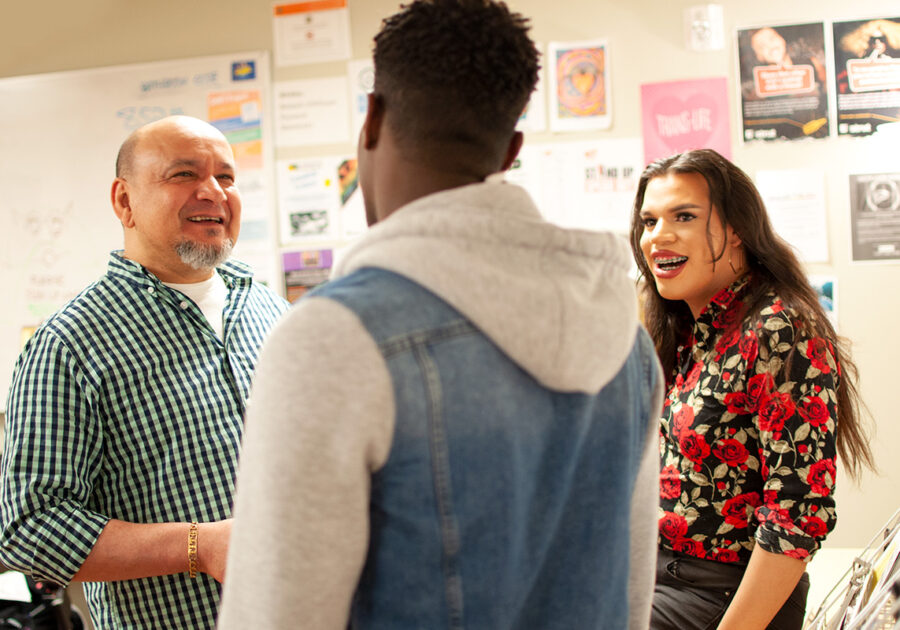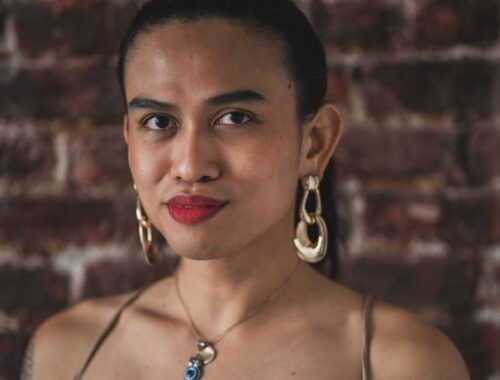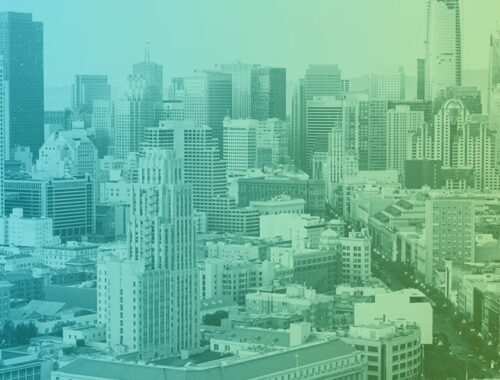
SFAF and Project Open Hand Partner to Produce Dining Out For Life
The two agencies will join forces in 2025 to serve the community a joint fundraiser spanning San Francisco and the East Bay.
We offer a variety of services to support people who are living with HIV and need help with their current housing or health insurance.

We can help with Plus Housing, AIDS Drug Assistance Program (ADAP) enrollment, General Assistance, CalFresh, Cash Assistance Program for Immigrants (CAPI), Medi-Cal, Medicare, CARE/HIPP, State Disability Insurance (SDI), and Social Security (SSDI/SSI).
Call 415-487-8000
Our skilled counselors provide one-on-one advocacy, assessing what benefits clients are eligible to receive, and can also assist in the application process.
Clients in our rental subsidy program often also receive other services like financial benefits counseling, as well as referrals to supportive services throughout the city. Our goal is to link people living with HIV to a network of care and stability.
All referrals for our rental assistance program come from MOHCD Plus Housing.

If you are experiencing homelessness and living with HIV, assistance is available from the SF Department of Homelessness and Supportive Housing (HSH).
Find a temporary shelter for adults, youth and families.
HSH provides housing assistance to people who are experiencing homelessness or are about to lose their housing within 14 days.
Food security & meals, financial assistance, health & wellness, laundry services, and other helpful resources.
If you want outreach for shelter or services, call SFHOT at 628-652-8000.
Get assistance on how to apply for affordable housing in San Francisco.
We offer a variety of services to support people who are living with HIV and need help with their current housing or health insurance.
We partner with the San Francisco Department of Public Health and the Mayor’s Office of Housing and Community Development (MOHCD) through the Plus Housing Program to stabilize people’s housing through rental assistance and promote access to HIV care and medication. Many of our clients have been provisionally housed for significant periods, and without assistance, they would be unable to afford their rental units, leaving them in danger of homelessness.
Clients in our rental subsidy program often also receive other services like financial benefits counseling, as well as referrals to supportive services throughout the city. Our goal is to link people living with HIV to a network of care and stability.
All referrals for rental assistance come through the MOHCD Plus Housing Program. The program is not designed to assist people currently in a housing crisis situation.
If you are homeless and living with HIV, seek help from the Department of Homelessness and Supportive Housing. People experiencing homelessness and living with HIV are not eligible to sign up for the Plus Housing Program.
San Francisco’s housing situation is difficult and expensive. Rent is high compared to other metropolitan areas or even within the San Francisco Bay Area. To get a general idea of current rental prices, you can check websites like Craigslist. Many of our clients either live with roommates, in single-room occupancy hotels or smalls studios.
All referrals for our rental assistance program come from Plus Housing, a program of the Mayor’s Office of Housing & Community Development. Get more information on the Plus Housing website.
San Francisco AIDS Foundation does not own or manage buildings to provide housing. Prospective subsidy participants are subsidized in their current unit, or are responsible for finding their own unit with the assistance of their assigned case manager. Once the unit is found, a housing inspector conducts an inspection to check federal safety and sanitary standards. Once the unit passes the inspection, we activate the subsidy and the subsidy checks are mailed directly to the landlord or property manager by the first of every month.
San Francisco AIDS Foundation is a third-party and assumes no responsibility with the lease or the unit. The lease or rental agreement is a contract between the landlord/property manager and the tenant. As long as the subsidy participant stays in the program, case managers will provide social support, advocacy or information and referrals.
To qualify for the Plus Housing, a program operated by the Mayor’s Office of Housing and Community Development, you must:
You can apply for the Plus Housing Program online. You will need to provide your contact information, your preferences for housing subsidies and units, and a few other details on the application. You’ll have to provide documentation to confirm your eligibility later in the process.
If you don’t have easy access to a computer or internet, you can fill out the online form at our main office in our services lobby. Ask to access a computer when you arrive in the services lobby.
Still have questions? Please email plushousing@sfgov.org. You can also email to find out approximately where you are on the list.
Here are some local housing resources that may help:
You are always welcome to stop by our main office to view housing opportunities posted on the bulletin board in our reception area.
Section 8 is a federal program that helps to bridge the gap between the cost of housing and the incomes of low wage earners and people on limited fixed incomes through site or portable rental assistance vouchers. In San Francisco, the program is managed by the San Francisco Housing Authority.
Unfortunately, the Section 8 Housing Wait List is closed. Call (415) 554-1205 or explore sfha.org for more information.
To access any HIV services, including emergency housing, you have to be a San Francisco resident and provide proof of residency. Any San Francisco service provider that has been providing you services for 30 days is able to generate a document that shows your proof of residency.
Lutheran Social Services manages the city’s Housing Stabilization Program that allows clients living with HIV to stay 28 days with the goal of transitioning into more stable housing. You need to be referred by specific HIV providers. To get a list of the referring agencies call:
Lutheran Social Services
Emergency Housing Coordinator
(415) 292-6325
Our financial benefits program helps clients navigate the complex private and public benefits system, including the AIDS Drug Assistance Program (ADAP), General Assistance, CalFresh, Medi-Cal (California’s Medicaid program), Medicare, CARE/HIPP, and Social Security.
Our skilled counselors provide one-on-one advocacy, assessing what benefits clients are eligible to receive, and can also assist in the application process.
Call 415-487-8000 for more information or to schedule an appointment with one of our benefits counselors.
ADAP is a state program that ensures people living with HIV gain access to HIV-related medications they otherwise could not afford. ADAP Enrollees may receive financial assistance with cost of medications, prescription copays and medical out-of-pocket costs. Individuals enrolled in ADAP are also eligible for the Office of AIDS Health Insurance Premium Payment Program (OA-HIPP). Participants receive assistance with premium costs for private insurance, Medicare Part D and Medigap insurance, or even employer-based insurance costs.
ADAP Eligibility Criteria:
San Francisco residents can enroll in ADAP at different sites throughout the city and also at San Francisco AIDS Foundation. You can call (415) 487-8000 to speak to an SFAF counselor about your eligibility for ADAP or for assistance enrolling in the program. People outside of San Francisco can learn where to enroll with the online enrollment site locator or call 1-888-311-7632.
More information about ADAP and OA-HIPP can be found on the California Department of Public Health website.
SSDI, or Social Security Disability Insurance, is the Social Security retirement fund, which you may receive under age 65 if you are disabled.
SSI, or Supplemental Security Insurance, is a needs-based program for disabled people with little or no income.
To learn more about your eligibility for these programs or to discuss them with a benefits specialist, San Francisco residents can call us at 415-487-8000. People outside of San Francisco should call the Social Security Administration at 1-800-772-1213 or their local Social Security office for more information.
SDI, or State Disability Insurance, is a short-term benefit administered by the state of California for disabled people. SDI is intended for those whose disability is expected to last less than one year. SDI benefits are provided to workers who are unable to work due to an illness, injury, or pregnancy that is not covered by worker compensation law.
To apply, California residents can call the Employment Development Department (EDD) at 1-800-480-3287. San Francisco residents can call one of our benefits counselors at 415-487-8000 for more explanation and guidance, if needed.
The welfare reform act of 1996 eliminated Supplemental Security Income/State Supplementary Payment (SSI/SSP) eligibility for most non-citizens. However, the state-funded Cash Assistance Program for Immigrants (CAPI) provides monthly cash benefits to aged, blind, and disabled non-citizens who are ineligible for SSI/SSP solely due to their immigrant status. Please call 415-487-8000 to speak with one of our benefits counselors to learn more.
Medi-Cal is California’s Medicaid program and is a joint federal and state program that pays for a broad range of medical services for low-income people who qualify, including doctor/dentist visits, X-rays, lab tests, prescription drugs, eye care, chiropractic services, and hospitalizations.
To ask about your eligibility or to apply, California residents should call their local County Department of Public Social Services. San Francisco residents interested in Medi-Cal can call a San Francisco AIDS Foundation benefits specialist at 415-487-8000.
Medicare is a federal health benefits program for people who are entitled to Social Security retirement insurance and for people with long-term disabilities (those who have been eligible to receive SSDI for 24 months). If you are eligible, enrollment is automatic for a portion of the programs; however, for comprehensive coverage the beneficiary must elect which programs they would like to participate in.
Please call 1-800-MEDICARE (1-800-633-4227) for specific information about eligibility and enrollment.
Our benefits counselors can directly assist you. Call 415-487-8000 to get in touch with one of our counselors.
They might also encourage you to contact PRC (formerly, Positive Resource Center), which specializes in disability law and advocacy for people with HIV and AIDS. PRC staff and attorneys can provide help with SSDI, SSI, long-term disability, and problems with health insurance policies. They can also provide representation before administrative law judges for reconsideration of disability denials. PRC can be reached at 415-777-0333 and prcsf.org.
If you’re experiencing homelessness, Access Points are localized community gateways you can use to get into San Francisco’s Homelessness Response System. That’s the system of programs and housing opportunities for adults experiencing homelessness.
A key factor for managing your health is stable housing. San Francisco offers a variety of local resources for people seeking housing assistance through its navigation centers and SAFE navigation centers. Both are proven ways of getting people on a pathway to housing and stability.
Along with PLUS Housing Program, the Mayor’s Office of Housing and Community Development operates the Database of Affordable Housing Listings, Information and Applications (DAHLIA), an online housing lottery system. Applicants can fill out a form to find out if they qualify for any upcoming housing lotteries for Below Market Rate units.

We offer a range of services that help connect you to HIV treatment, benefits, insurance, and long-term HIV care. All services are free and available to people living with HIV in the SF Bay Area.

The two agencies will join forces in 2025 to serve the community a joint fundraiser spanning San Francisco and the East Bay.

Crisostomo, SFAF’s Director of Aging Services, will receive the Thom Weyand Unsung Hero Award from the National AIDS Memorial Grove this December 1.

Here’s what you said about bathhouses in San Francisco.

This November, trans and gender expansive folx and their allies come together in...

Kevin Abrams, aka Iman., creates space for Deaf and Hard of Hearing artists to explore the art of drag.

Athleticism and able-bodiedness often accompany images of drag, but Alex, aka Glamputee, redefines what it means to slay the stage.

Leaving the Philippines for a chance to live as her authentic self, Kiki shares the risks she took in establishing a new life here in the Bay Area, and the support she found along the way.

Join us for art, cultural celebrations, activism, and plenty of Queer joy!
